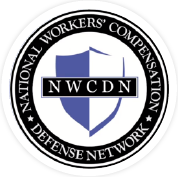Whistleblower Manual Update Details Policy On Punitive, Distress Damage Awards
| OSHA recently issued an update to its whistleblower enforcement manual providing further depth of information to field staff on how to approach two major issues — the awarding of punitive damages and determination of emotional distress as a result of retaliation — as well as detailing other policies such when to award front pay instead of reinstatement in rare cases where returning to the job would be impossible or unbearable.The guidelines affect a range of issues including merit determinations, damage awards and settlement talks. Specifically the agency revised Chapter 6 to provide updated guidance regarding remedies and settlement agreements.
OSHA’s overhaul to the manual, which had not been done since September 2011, also contains new references to whistleblower statutes enacted and now enforced by OSHA since the earlier publication. OSHA administers 22 anti-retaliation statutes and has worked intensively under the Obama administration to elevate the program’s profile and effectiveness and address persistent concerns from worker advocates about programmatic dysfunction and case backlog. The agency’s national office outlines policy about when it would be appropriate to award remedies and damages. “Damage awards should result from a fact-specific evaluation of the evidence developed in the investigation. Investigators should consult with their supervisors in designing the appropriate remedy,” OSHA states. Regional solicitors of labor (RSOL) should be involved in determining potential remedies in any case that OSHA anticipates referring for litigation, OSHA says. RSOL and the national whistleblower protection programs directorate are available for consultation, however, on the proper remedies in cases where OSHA will be issuing merit findings but not referring the case for litigation. RSOL generally should be consulted before OSHA awards preliminary reinstatement, front pay, punitive damages, compensatory damages for non-pecuniary losses such as emotional distress, and any order to change or rescind a corporate policy. Chapter 6 also provides guidance for the effective negotiation of settlements and their documentation. Legal experts note that OSHA has provided more detail than in earlier guidance on the award of punitive damages. Steven Pearlman and Amanda Wiley with Proskauer’s whistleblower defense group note in a recent law blog that, significantly, OSHA has included in the manual that employer good-faith efforts should be considered in deciding not to pursue punitive damages, which the agency says “may not be appropriate if the respondent had a clear-cut policy against retaliation which was subsequently used to mitigate the retaliatory act.” They also note that the revised manual devotes two full pages to a discussion of emotional distress damages, which only got one paragraph in the earlier directive. “Emotional distress is not presumed,” OSHA states in the updated version. “Generally, a complainant must demonstrate both (1) objective manifestations of distress, and (2) a causal connection between the retaliation and the distress. Objective manifestations of emotional distress include, but are not limited to, depression, post-traumatic stress disorder, and anxiety disorders. Objective manifestations also may include conditions that are not classified as mental disorders such as sleeplessness, harm to relationships, and reduced self-esteem.” The attorneys point out that the Fourth Circuit Court of Appeals recently decided that emotional distress damages are available under the Sarbanes-Oxley Act, which contains provisions enforced by OSHA. The concept of front pay is also a subject of discussion the new manual. Front pay in the context of settlement, according to OSHA’s definition, is a term referring to future wage losses, calculated from the time of discharge, and projected to an agreed-upon future date. “Front pay may be used in lieu of reinstatement when one of the parties wishes to avoid reinstatement and the other agrees.” OSHA’s new manual, in another significant development, tells investigators to consider whether an employer should be required to provide whistleblower training to current employees and managers, the law firm notes in its analysis. “In instances where the complainant does not return to the workplace, the settlement agreement should make an effort to address the chilling effect the adverse action may have on co-workers,” OSHA states in a discussion of training. “Posting of a settlement agreement or notice to employees, while an important remedy, also may be an impediment to a settlement. Other efforts to address the chilling effect, such as employer-provided training, may be available and should be explored.” — Christopher Cole ()
|

